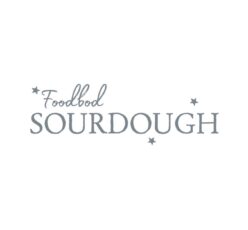
Sourdough success
Sourdough is a simple thing, it truly is far easier to make than you may think. All it requires is a healthy happy starter, good flour, good water, a bit of salt, gentle handling, patience, and understanding; understand your starter and how to use it and your are already on the right track. Match that with good flour to build up a good structure in the dough, and you are way ahead of the game!
So let’s talk about the flour…
I cannot emphasise enough how important your choice of flour is to making sourdough. The majority of issues that people contact me about to do with their sourdough baking revolves around flour.
Not all flour is equal. It does not all do the same job.
In bygone times there would have been much less choice, but with progress and advancement comes choice and as a result we now have an endless range of flours available to us all over the world. So the challenge is to find what works best for you and your sourdough in your country. And the key is a good quality flour, especially if you are new to sourdough.
My favourites and my recommendations are listed below.
What is strong flour?
Sourdough is a free form bread because it is not typically baked in a standard loaf tin to hold it and give it shape; consequently the dough needs to be strong enough to hold its form during the bake. This is achieved by using at least a portion of strong flour in the dough and performing pulls & folds to build up the gluten structure in the dough.
˜Strong flour relates to the gluten protein strength of the flour, as opposed to the protein as stated in the nutritional value of the flour. It may say on the side of the bag that your flour is 12g of protein per 100g, this does not mean therefore that the protein content of the gluten for our purposes is 12%, it will equate to slightly less than 12%.
For example, the flour I use is 13.3g of nutritional protein per 100g of flour, but the actual gluten and it’s protein is 12.7%. Use this as a guide.
Ideally your strong flour should be between 12.5-14% protein and non organic, especially if you are new to sourdough as non organic flours are stronger and will make your introduction into sourdough smoother.
I would always advise playing around with different flours later once you have got to grips with sourdough and using your starter, but when you first come to sourdough, keep it simple and consistent and make your life easy.
Your starter is the key to everything and it needs to be strong and healthy and active to work well for you, so give it the best possible flour you can, and stick with it. If it’s happy, and responsive and loving life, don’t change anything, keep it consistent.
Around the world in a thousand flours!
Flours around the world differ greatly. The majority of discussions I have with people about their sourdough revolve around flour and the flour that is available to them.
For example, strong flour in one country may state that it has the same protein content as those in the UK, but the way that it is measured may actually different so it won’t be the same or behave in the same way; plus flours take water differently in different countries, so, for example, often American flours benefit from less water that UK flours. This is just one example of the differences of flours across the world.
Flours in other countries have varying protein contents based on the breads that are typically baked in that country and you will benefit from doing a bit of research into the flours available to you.
The key point here is that flour makes a huge difference and getting to know the flour that is available to you and how to use it will help your sourdough journey. If you find that your dough is particularly floppy or sticky, or that it isn’t holding its shape when you turn it out from the banneton, in the first instance I would suggest that you try using less water than my master recipe amounts and see if it makes a difference to your dough; or try a different stronger flour.
A good strong consistent flour will make your introduction into sourdough simple and successful. Understanding how that flour behaves in your country will also help.
Other flours
Plain flour, as we call it in the UK, tends to be used to make cakes and baked goods, and is not great for bread making as it is not a strong flour. Typically it will be around 9-10% protein.
Wholemeal/wholewheat flour is very tasty, but is best used as a portion of your sourdough loaf along with a good portion of strong white bread flour; you will probably also need some extra water as wholemeal flour soaks up a lot of water. If you choose to make 100% wholemeal/wholewheat flour in your sourdough expect your dough your loaf to be denser and possible a little moist in the middle.
Einkorn is the oldest of the ancient grains and performs differently again. It’s incredibly tasty but does not hold its structure on its own; as it proves and grows it becomes spongy and cannot be pulled and stretched so needs to be used differently. It benefits from being supported by some strong flour, being mixed with another flour, or being baked in a tin.
Spelt flour is ground from the ancient grain spelt which is very tasty. White spelt flour is very soft and fine, and is not strong enough to be used to make a freeform loaf on its own unless you bake the loaf in a tin to provide structure. I would typically use 50:50 strong white bread flour:spelt flour, but if you are new to it, I would suggest starting with a lower portion of spelt flour.
Kamut is ground from the ancient grain khorasan which is also very tasty. Again kamut flour is ideally used as a portion with strong bread flour. Kamut flour is a bit grainier than the spelt, and might initially make the dough feel stiffer, but it will then give and soften as you work with the dough. I would typically use 80:20 strong white bread flour:kamut flour.
Rye flour is quite different and can make the dough very sticky.
Other flours and flour mixes are available to experiment with and if you find one that’s particularly successful do let me know!
Flours around the world
Below is a list of flours that I have collected from asking sourdough bakers around the world what works well for them. Some are just brand names, some are the names of the mills, some are the brand and type. This is not an exhaustive list and is merely to help as a guide in case you would like any tips on what to use where you are..
UK
My preferred flours are Matthews Cotswold Flour strong white bread flour and Matthews Cotswold Flour Churchill’s white flour, wholemeal spelt flour, Cotswold Crunch, stoneground wholemeal. These are just some of the flours that I recommend, I use them in my home baking and for the recipes in my books and on my site. All of my recipes have been tested using these flours.
Other options in the UK include:
Marriages finest strong white bread flour, Waitrose own brand strong white bread flour, Shipton Mill Canadian bread flour with no changes needed to my recipes.
PLEASE NOTE If you use strong white bread flour from any of the following please reduce the amount of water in my master recipe by 25g: Leckford Mill, Allinsons, Sainsbury’s, Tesco, Lidl, Aldi, Doves Farm organic strong white bread flour, Marriages organic strong white bread flour, Wessex Mill strong white bread flour.
The following list has been gathered as recommendations from my bakers around the world, I have not personally tested these flours:
USA
2025 UPDATE: YOU CAN NOW BUY MATTHEWS COTSWOLD FLOURS ON AMAZON.COM
King Arthur bread flour
King Arthur all purpose flour
King Arthur whole wheat
Bob’s Red Mill bread flour (use less water)
Bob’s Red Mill unbleached enriched artisan bread flour (use less water)
Other recommended flours:
Wheat Montana Natural White (AP) used in conjunction with Central Milling Organic Beehive flour
Central Milling artisan bakers craft plus
Archer Daniel Midland stone ground whole wheat
ADM Dominator
Hodgson Mills whole grain rye
Arrowhead Mills flours
Wheat Montana whole wheat & white
Canada
Bobs Red Mill whole wheat, kamut, semolina
ADM three stars enriched flour
Milanese organic unbleached all purpose flour & bread flours
Robin Hood unbleached flour
Oak Manor organic rye
Roger and Anita’s organic flour
Purity flours
Italy
W400 bread flour
Manitaly flour
Solina flours
Jervicella flours
Caputo Manitoba Oro farina forte
Gran Mugnaio Professionale tipo manitoba tipo 0
Australia
Allied Mills perfection bakers flour
Laucke Wallaby Bread Flour
Defiance bakers flour
Garganis Premium !
Manildra strong bakers flour
Bee Sustainable, Lygon St Brunswick, Melbourne (Victoria), for baker’s flour and fresh ground wheat
The Source whole foods store selection of flours
All About Bread in Perth for a selection
South Africa
Eureka Mills stoneground flour
Jordan
Bob’s Red Mill bread flour
India
Blue Bird Maida
Madam Maida APF
Fab India APF
Kapali Atta
France
Farine de Gruau T45 strong white flour
Moulins Chaud Frares De Versailles farine gwaudor type 55
T55 All purpose flour with added gluten
Farine Petit Epeautre
Germany
French Alsatian flour
Italian semola rimacinata di gran duro
Canadian Manitoba flour
Belgium
De Zuidmolen flours
Netherlands
Flours from Aeoulus windmill
Portugal
Farinhas Paulino HortaTrigo Tipo 55 Super (13.6%)
Trigo Tipo 55 Super Biologica (13.9%)
Type 55 plain flour
Spain
Rincon del Segura harina Blanca de Trigo de Fuerza
Singapore
Bob’s Red Mill artisan bread flour & others
Japanese bread flour
Iran
Flour used to make baguettes purchased from local bakery
UAE
Waitrose own brand strong white bread flour
Brazil
Stagioni5 flour
Farinho integral
Farinha caputo 0
Farinha caputo 1
Mexico
Elizondo Hoja de Plata
La Espiga flour
KDT -all purpose
Aldean – whole wheat
Columbia
Paselli bread flour
Local flours
Turkey
Corum Hatap flour
Unbranded stone ground whole wheat
Switzerland
Bio Ruchmehl: Bio Suisse Weizen CH
Latvia
Dobele Kviesu milti
If you like my website and you’d like to support me, click here to buy me a Cup of tea!. Thank you xx
